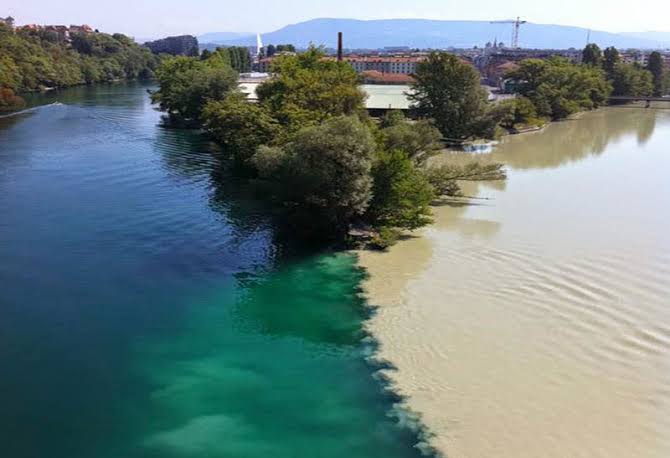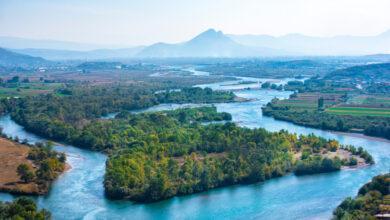
10 Importance Of Rivers In Nigeria
Importance Of Rivers In Nigeria – Rivers are an essential aspect of any country’s natural resources, and Nigeria is no exception. The importance of rivers in Nigeria cannot be overstated. Rivers play a significant role in providing essential resources for the country’s people, such as water, fish, and and also a helping hand for agriculture.Information Guide Nigeria
One of the most significant rivers in Nigeria is the River Niger, which is the principal river in West Africa. The River Niger provides an essential transportation route, irrigation for farming, and hydroelectric power for Nigeria’s economy. Similarly, the Benue River, Nigeria’s second-longest river, plays a crucial role in Nigeria’s agriculture, providing water and fertile land for farming for people in the south south zone of the country.
👉 Relocate to Canada Today!
Live, Study and Work in Canada. No Payment is Required! Hurry Now click here to Apply >> Immigrate to CanadaRead Also: 10 Importance of River Basins in Nigeria
Aside from their economic significance, rivers also have cultural and spiritual importance in Nigeria. Many communities in Nigeria use rivers for traditional and religious practices, including worship and cleansing ceremonies. This can be understated but it’s also an importance as it refers to Nigeria heritage and culture.Importance Of Rivers In Nigeria
However, the importance of rivers in Nigeria is threatened by human activities such as pollution and deforestation. The government and individuals need to take action to preserve and protect Nigeria’s rivers for future generations.
Nigeria’s Geography and Waterways
Nigeria is a country in West Africa with diverse and varied geography. Nigeria is home to several rivers and waterways, including the River Niger, the Benue River, and the Cross River, among others. These rivers provide essential resources for the country’s people, such as water, fertile land, and transportation. 50 Best University In Nigeria For Civil Engineering
The River Niger, Nigeria’s longest river, flows through the country, from its source in Guinea to its outlet in the Atlantic Ocean. The Niger River is an essential transportation route for goods and people, with several ports and harbors along its course. The river also provides irrigation for farming and is a significant source of hydroelectric power for Nigeria’s economy.
Similarly, the Benue River is Nigeria’s second-longest river and a significant tributary of the Niger River. The Benue River flows through central Nigeria, providing water and fertile land for farming.100 Best University in Nigeria And Their School Fees
Nigeria’s waterways also include several lakes, such as Lake Chad, which is shared with several neighboring countries, and numerous smaller rivers and streams. These waterways are vital for transportation, fishing, and farming.
Read Also: 10 Importance Of Raw Materials In Nigeria
👉 Relocate to Canada Today!
Live, Study and Work in Canada. No Payment is Required! Hurry Now click here to Apply >> Immigrate to CanadaEconomic Significance of Rivers in Nigeria
Nigeria’s rivers play a crucial role in the country’s economy. The economic significance of rivers in Nigeria is primarily due to the benefits they provide in terms of transportation, irrigation, and hydroelectric power.NYSC Portal
One of the most significant rivers in Nigeria is the River Niger, which provides a vital transportation route for the country. The River Niger is navigable for about 572 kilometers, allowing for the transportation of goods and people from the Niger Delta to the interior of the country. Additionally, the river serves as a source of irrigation for agriculture, providing water for crops and increasing yields.
Nigeria’s rivers also contribute significantly to the country’s energy needs through hydroelectric power. For example, the Kainji Dam, located on the Niger River, generates hydroelectric power for Nigeria’s national grid. The Shiroro Dam, located on the River Kaduna, is another hydroelectric power plant in Nigeria.JAMB Portal
Moreover, the fishing industry in Nigeria is heavily reliant on rivers, with the rivers providing a source of livelihood for many Nigerians. Nigeria’s rivers are home to various species of fish, including tilapia, catfish, and barracuda, among others.JAMB Result
Read Also: 10 Importance Of Popular Participation In Nigeria
10 Importance Of Rivers In Nigeria
Rivers are one of the most vital natural resources in Nigeria. They play an essential role in providing various benefits to the people and the economy. Here are ten importance of rivers in Nigeria.
-
Transportation:
Rivers are an essential transportation route for goods and people in Nigeria. The River Niger is the primary navigational channel for transportation in Nigeria, providing access to the country’s interior. 200 romantic love message for her
2. Irrigation:
Rivers in Nigeria provide a vital source of irrigation for agriculture, especially in the northern part of the country. The Niger River is the most significant river for irrigation purposes in Nigeria, providing water for crops and increasing yields.
3. Hydroelectric Power:
Rivers in Nigeria provide a significant source of hydroelectric power. The Kainji Dam, located on the Niger River, generates power for Nigeria’s national grid, and the Shiroro Dam, located on the River Kaduna, is another hydroelectric power plant in Nigeria.
4. Fishing:
Rivers in Nigeria are home to various species of fish, including tilapia, catfish, and barracuda, among others. The fishing industry in Nigeria is heavily reliant on rivers, providing a source of livelihood for many Nigerians.
Read Also: 10 Importance Of Mining In Nigeria
5. Drinking Water:
Rivers in Nigeria are a significant source of drinking water for many people in the country, especially in rural areas. The rivers serve as a source of fresh, clean water for drinking and other domestic uses.
6. Tourism:
Rivers in Nigeria also play a crucial role in the country’s tourism industry. The River Niger and other significant rivers in Nigeria offer opportunities for boat rides, fishing, and other water-based activities that attract tourists to the country.
7. Industrial Use:
Rivers in Nigeria provide a source of water for various industrial activities, including manufacturing and mining. Many companies use water from rivers for their production processes.105 good morning messages
8. Erosion Control:
Rivers in Nigeria help to control erosion by carrying away soil and sediment from the land. Rivers also deposit these sediments on riverbanks and floodplains, which helps to maintain soil fertility and prevent land degradation.
9. Biodiversity:
Rivers in Nigeria are home to a wide range of plant and animal species, contributing significantly to the country’s biodiversity. Rivers provide habitats for various aquatic animals, including fish, amphibians, and reptiles.
10. Culture and Spirituality:
Rivers in Nigeria have cultural and spiritual significance, with many communities using them for traditional and religious practices, including worship and cleansing ceremonies.
Conclusion
In conclusion, rivers are of great importance to Nigeria in many ways. They serve as a source of freshwater for domestic, agricultural, and industrial use. Rivers also provide a means of transportation, as many people use them to move goods and people from one place to another.
Read Also: 10 Importance of Tailoring in Nigeria
In addition, the rivers in Nigeria support a wide range of aquatic life, including fish and other marine creatures. These creatures provide a source of food for local communities and are an important part of the country’s economy.
Furthermore, the rivers in Nigeria play a crucial role in the country’s ecosystem by regulating the water cycle, helping to prevent flooding and erosion. They also support the growth of vegetation and provide habitats for a wide variety of flora and fauna.
It is essential to protect the rivers in Nigeria to ensure that they continue to provide these vital services. This can be achieved by implementing policies and regulations that prevent pollution, overuse, and other harmful activities that can harm these valuable resources.
Check JAMB RESULT
Check and Confirm: How much is Dollar to Naira








